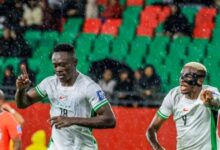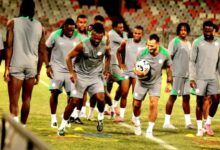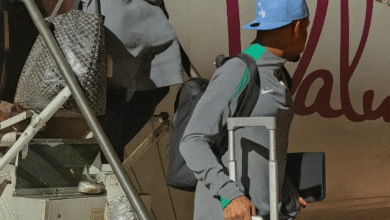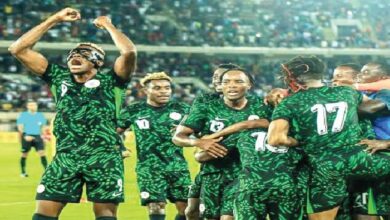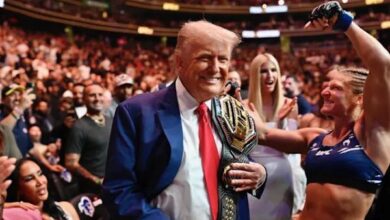Christian Chukwu: The Skipper, Chairman, Coach who reigned supreme
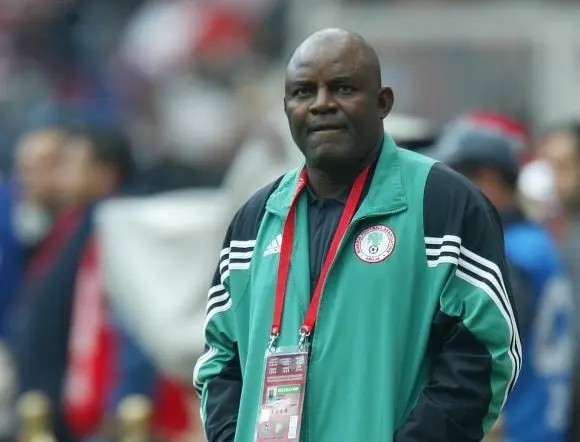
Nigeria is in mourning. The green-white-green flag flutters at half-mast as the news reverberates across the nation and the footballing world: Christian Chukwu, former captain and head coach of the Super Eagles, has passed on. He died after a prolonged battle with illness, aged 74. His departure leaves a gaping hole not just in Nigerian football, but in the soul of a nation that adored him.
In a moving tribute by Segun Odegbami, another revered former player of Nigeria’s Green Eagles, he mourned the death of his close friend and teammate, Christian Chukwu, on Saturday.
‘My Chairman Has Passed On,’ Odegbami said, describing Chukwu as not only a great leader but also a dear personal friend. He was my teammate, my captain, my brother. Christian was one of the finest footballers Nigeria has ever produced.”
Tributes have since poured in from President Bola Tinubu, Gov. Peter Mbah of Enugu State as well as leaders and stakeholders in the sports sector.
The Lionheart of Enugu: A Captain like No Other
Born in Enugu in 1951, Christian Chukwu rose from the coal-rich city to become one of the most iconic figures in Nigerian football. As a defender, he combined elegance with authority, becoming the bedrock of the national team’s backline throughout the 1970s.
But it was not just his defensive steel that won hearts — it was his leadership. As captain of the Green Eagles, Chukwu led from the front, with unmatched poise and an indomitable spirit. He famously wore the captain’s armband when Nigeria lifted its first-ever Africa Cup of Nations title on home soil in 1980. That team, filled with legends like Segun Odegbami and Mudashiru Lawal, found its compass in the calm, commanding presence of Chukwu.
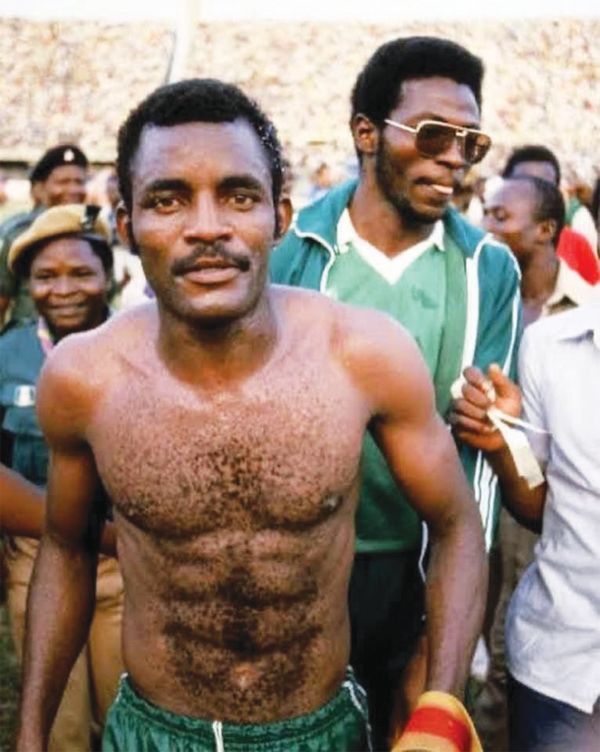
At club level, he was a cornerstone of the all-conquering Rangers International of Enugu, winning multiple domestic titles and standing tall in continental competitions. His performances for the Flying Antelopes helped shape the golden era of Nigerian club football in the 70s.
From the Bench: The Chairman Coach
After hanging up his boots, Chukwu seamlessly transitioned into management. He coached Rangers and the national team at different intervals, always with the same hallmark of discipline and dignity. In 2003, he was appointed head coach of the Super Eagles, becoming the first Nigerian to do so on a substantive basis in over a decade.
Under his stewardship, the Super Eagles finished third at the 2004 Africa Cup of Nations in Tunisia – a respectable feat in a transitional era for Nigerian football. He also helped mentor a new generation of stars, instilling the same patriotic fire he once carried onto the pitch.
But for Chukwu, coaching was never about the glory. It was service. Whether with Rangers, the national team, or during stints abroad (including in Lebanon and Kenya), he was guided by principle and purpose. He earned the nickname “Chairman” — not out of ego, but out of reverence. Players respected him. Fans adored him. Administrators leaned on his wisdom.
A Legacy Carved in Stone
Christian Chukwu’s legacy is not measured merely in trophies or statistics — it lies in his influence, his character, and his unyielding devotion to Nigerian football. He was the bridge between generations, a statesman of the sport.
He is one of the few Nigerians to have captained and coached the national team – a rare double feat. He embodied the ethos of Nigerian football: skill with steel, flair with fight, passion with purpose.
He was also a mentor and father figure to countless players and coaches, many of whom now grace the touchlines and commentary booths across the continent. For him, it was never about self -it was about country.
His achievements earned him recognition as a CAF Legend in 2008 and a Life Ambassador role with the Nigeria Football Federation (NFF) in 2019.
Christian Chukwu, widely regarded as one of Nigeria’s greatest football icons, achieved numerous milestones throughout his illustrious career as a player, captain, and coach. Here are the key highlights:
As a Player
- Club Success with Enugu Rangers: Chukwu captained Enugu Rangers International Football Club from 1974 to 1981, leading them to win four Challenge Cups and five National League titles. In 1977, he guided Rangers to victory in the African Cup Winners Cup, making them the first Nigerian club to achieve this continental triumph.
- National Team Leadership: As captain of Nigeria’s Green Eagles (later renamed Super Eagles), Chukwu led the team to their first-ever Africa Cup of Nations (AFCON) title in 1980. The 3-0 victory over Algeria in Lagos marked a historic moment for Nigerian football, with Chukwu lifting the trophy as a symbol of national pride.
- AFCON Bronze Medals: Under his leadership, Nigeria secured bronze medals at the AFCON tournaments in 1976 and 1978, further cementing his reputation as a consistent force on the international stage.
As a Coach
- Golden Eaglets Triumph: Chukwu served as assistant coach when Nigeria’s U-16 team, the Golden Eaglets, won the FIFA U-16 World Cup in China in 1985—Nigeria’s first World Cup victory at any level.
- Super Eagles Achievements: As an assistant coach, he was part of Nigeria’s golden generation that won AFCON in 1994 and reached the Round of 16 at the FIFA World Cup that same year. Later, as head coach from 2002 to 2005, he led the Super Eagles to a bronze medal at the 2004 AFCON in Tunisia.
- International Coaching: Chukwu also coached Kenya’s national team in 1998 and managed Enugu Rangers during the Nigeria Premier League season of 2008–2009.
Legacy
Christian Chukwu’s contributions went beyond trophies; he was a symbol of leadership and dedication. His loyalty to Nigerian football—choosing to stay and play domestically rather than moving abroad—set an example for future generations. His achievements earned him recognition as a CAF Legend in 2008 and a Life Ambassador role with the Nigeria Football Federation (NFF) in 2019.
Chukwu’s legacy is etched in Nigerian football history as a pioneer who bridged eras—from leading as a player to mentoring future generations as a coach. His role in shaping Nigeria’s football identity cannot be overstated.
The Final Whistle: A Battle Fought Bravely
In his later years, Chukwu battled health complications that saw him in and out of hospitals. In 2019, he underwent life-saving treatment in the United States, thanks to support from well-meaning Nigerians and intervention by billionaire businessman Femi Otedola.
But the fight continued quietly behind the scenes. The same stoicism that defined his playing days remained till the end. He never courted pity, never sought the spotlight. He was a lion to the end — noble, resilient, proud.
News of his passing has brought an outpouring of grief from all corners of the globe. Former teammates, players, journalists, and fans have taken to social media to share stories, memories, and tributes. Each one paints the picture of a man who was not just a footballer, but a national treasure.
Immortalising a Giant
How does a nation honour such a man?
Christian Chukwu deserves more than statues or stadiums — he deserves to be enshrined in the soul of Nigerian football. The NFF must consider naming a national facility — perhaps the NFF Technical Centre or a key national stadium — in his honour. Enugu, his home and fortress, should erect a fitting monument. A national day of tribute. A memorial match. Scholarships in his name for young defenders. A coaching institute bearing his legacy.
He gave everything to Nigeria: his youth, his health, his heart.
As the final whistle blows on a glorious life, the echoes of Christian Chukwu’s impact will continue to resound across generations. He reigned supreme as a player, a coach, and a patriot.
Christian Chukwu, you carried the weight of a nation on your shoulders – and you never buckled.
Your name will forever echo in the stands of Nigerian football and the hearts of millions.
Rest well, Chairman Chukwu. The pitch will miss your stride. But your story, your legacy, ill play on forever.



